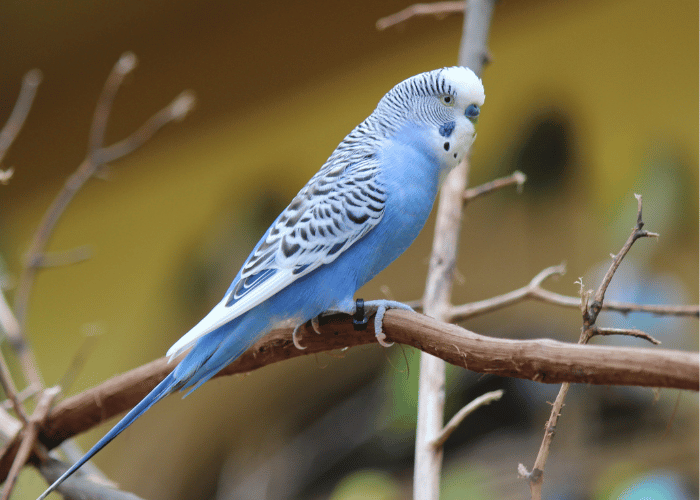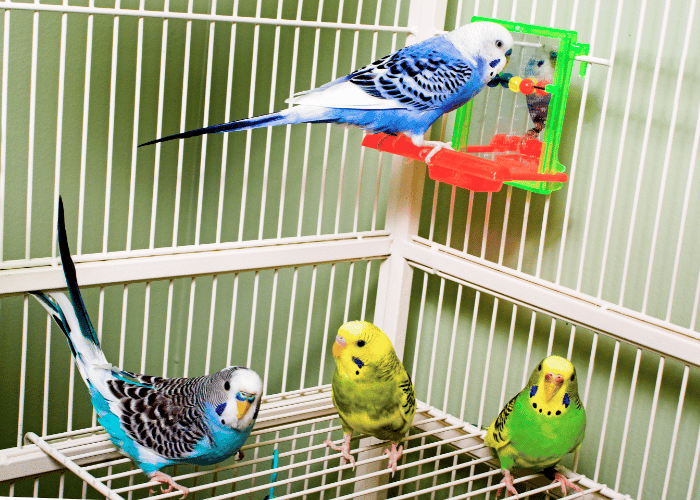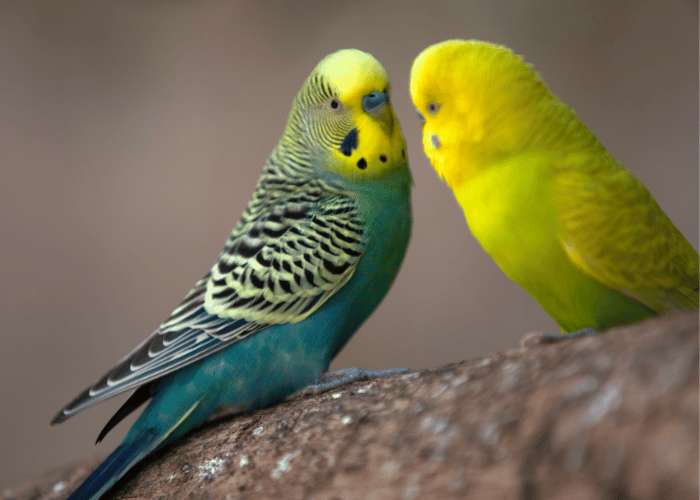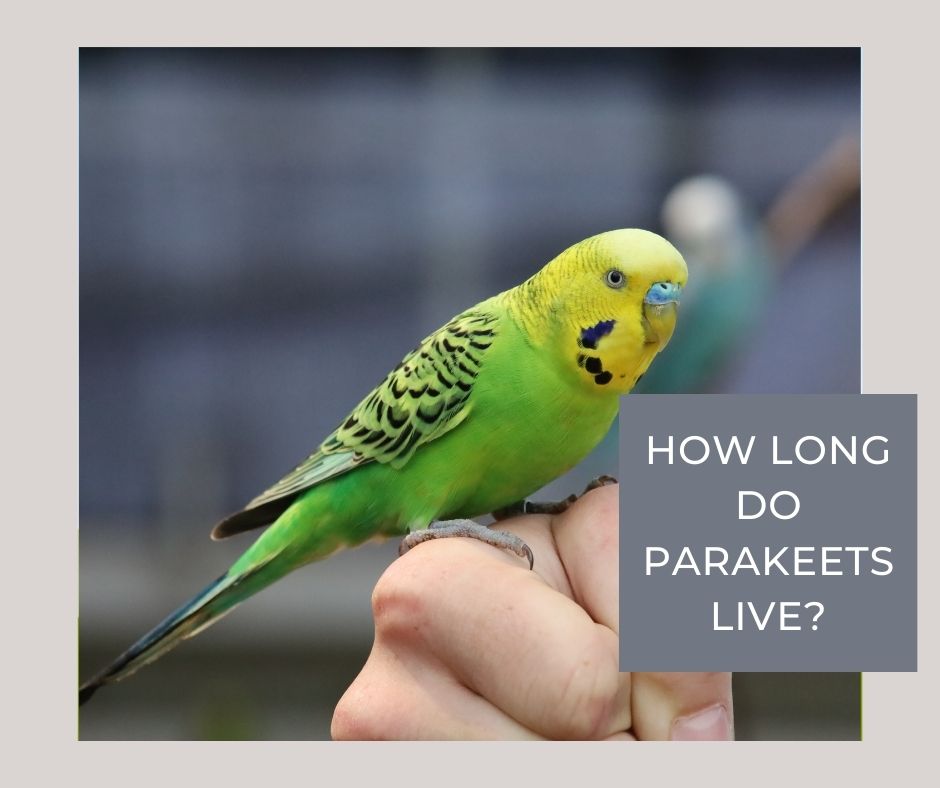How Long Do Parakeets Live
Table of Contents
So, you’re curious about the lifespan of parakeets? That’s a good question to ask before bringing one of these feathered friends into your home. Parakeets, also known as budgies, generally live between 5 to 15 years in captivity. They are a long-term commitment, much like a pet dog or cat.
A parakeet’s lifespan, however, is not merely predicated on the passage of time. Instead, it’s profoundly impacted by factors such as diet, mental stimulation, and regular care. Some well-cared-for parakeets have been known to live into their early 20s! That’s pretty impressive for such a small bird.
Now let’s dig deeper into the fascinating world of parakeets and learn more about what determines their lifespan. You’re well on your way to becoming a true parakeet pro!

Understanding the Parakeet Lifespan
You may be curious about how long your feathery friend is likely to share your life. Rest assured, parakeets are known for their relatively long lifespan in comparison to other small birds. Let’s take a closer peek into the factors influencing the life expectancy of these vibrant companions.
There’s a bit of a range when it comes to how long parakeets live. On average, parakeets live between 5 to 15 years in captivity. But hey, don’t be surprised if you come across stories of parakeets pushing past their teens. The record age for a captive parakeet, intriguingly, is said to be around 29 years!
Here’s a nice little table to illustrate the point:
| Environment | Average Lifespan |
|---|---|
| Wild | 4-5 years |
| Captivity | 5-15 years |
Now, you might be wondering why there’s such a difference between the life expectancy in the wild and in captivity. Well, when safely ensconced in your home, parakeets are protected from predators and harsh weather, and they also receive regular meals – so it’s a cushier life overall!
Factors that can influence a parakeet’s lifespan include:
- Diet: A balanced diet helps to maintain a healthy weight and prevent nutrient deficiencies.
- Exercise: Regular exercise boosts their cardiovascular health and keeps them mentally stimulated.
- Vet care: Regular checkups can help catch and treat any potential health issues early.
So, while owing a parakeet comes with the responsibility of providing a loving and caring environment, there’s also the incredible reward of companionship that can last for many years. Remember, a happy, well-cared-for parakeet is more likely to live a long, fulfilling life. It’s all in your hands now—how you care for your parakeet can potentially extend its lifespan. Make it count!
Factors Affecting a Parakeet’s Life Expectancy
Have you ever wondered, “How long do parakeets live?” It’s an essential thing to ponder when adopting these sassy, colorful birds. Buddy, I’ll tell you, numerous factors come into play when determining the lifespan of a pet parakeet.
Diet comes in first on our list. Just like you, parakeets need a balanced and nutritious diet to live a long, healthy life. Seeds may be their natural food but relying solely on seeds could result in a deficiency in certain vitamins. Try adding fruits, vegetables, and specially formulated pellets to give them all the nutrients they need.
Next, the environment of your feathery little friend also plays a pivotal role. An environment that’s too hot, too cold, or inconsistent can lead to an array of health problems. A cage that’s too small or overcrowded isn’t ideal either. Your parakeet needs plenty of space to flutter those wings and play.
Moving on to regular health check-ups. Just like we humans, parakeets also need routine vet checks. This ensures early detection and treatment of potential issues.
Let’s not overlook the importance of mental stimulation. A bored parakeet can develop behavioral and health issues. Toys, games, social interaction, they all contribute to their mental well-being.
Keeping these factors in mind, here’s a general comparison of a parakeet’s average lifespan under different conditions:
| Condition | Average Lifespan |
|---|---|
| Wild Parakeets | 4-6 years |
| Domestic Parakeets (Without proper care) | Up to 10 years |
| Domestic Parakeets (With excellent care) | As long as 15-20 years |
While it’s impossible to predict with certainty how long your parakeet will live, remember that your role in giving them a healthy, happy life can significantly affect their life expectancy. Provide a balanced diet, a suitable environment, regular vet care, and enriching activities to help your parakeet make the most of its feathery life.
There’s something to think about, huh? Your role isn’t just providing a home for your pet parakeet, it’s about ensuring that they thrive. Stay tuned as we’ll explore each of these factors in depth in following sections. Fly along!

Comparison: Wild vs Domesticated Parakeets’ Lifespan
Did you know that a parakeet’s lifespan can largely depend on whether it’s been raised in the wild or as a domestic pet? Let’s dive into the details and unravel the truth behind the ages of these chirpy flyers.
In the wild, a parakeet’s life can be pretty challenging. They face a variety of factors that could shorten their lifespan. It’s not just predators they have to worry about; disease, severe weather, and scarcity of food all factor in. The average lifespan for a wild parakeet is bleak – typically, it falls between 4 to 6 years.
On the flipside, domesticed parakeets tend to live considerably longer. They live a pampered life with controlled diets, medical care, and, let’s not forget, loads of love from their human buddies! You’ll often find domestic parakeets aging up to 15 years, though some lucky ones have been reported to live up to 20 years!
Here’s a simple comparison for a clearer picture:
| Parakeets | Average Lifespan |
|---|---|
| Wild | 4-6 years |
| Domestic | 10-15 years |
But don’t let these numbers fool you. The responsibility of owning a parakeet is not to be taken lightly. It’s important to remember that, while domestic parakeets can live 3x longer than their free-flying counterparts, they require adequate care:
- A varied balanced diet (of seeds, fruits, vegetables, and grains)
- Regular veterinary check-ups
- Mental stimulation (toys, puzzles, and interaction)
- Exercise (room to fly and stretch their wings)
You’ve got to remember, even though they’re tiny, they’re still a significant commitment. They’re relying on you for their health and wellbeing. So, take heart, provide love, and your domesticated parakeet could well outlive its wild cousins by a tweet-mile!
Essential Care Tips to Increase Your Parakeet’s Life
Keeping your parakeet perky and prolonging its life can be a pretty rewarding task. There’s a few fundamental pointers you need to keep in mind. So, let’s dive into them, shall we?
A balanced diet is the keystone to health. Ensure your feathered friend’s diet includes a variety of fresh fruits, veggies, and grains— yes, beyond the seed mix! Remember, kale, spinach, and apples are great choices, but avoid avocado and fruit seeds, these can be harmful.
Proper housing can make a world of difference. Your parakeet needs room to fly and explore within its cage. The larger, the better! There should also be plenty of toys and perches to keep him happy and stimulated. Don’t forget about cleanliness! A clean cage minimizes the risk of diseases.
Regular vet visits can never be over-emphasized. Just like you, your parakeet needs routine check-ups to maintain good health. Your vet can catch early signs of ailments and can advise you on the best diet and care practices.
Lastly, your tiny pal will appreciate some social interaction. Set aside some time every day to chat, whistle, or just hang out with your parakeet. Healthy interaction can help in keeping him mentally active and happy.
Here’s a quick summary to keep handy:
| Care Tips | Details |
|---|---|
| Diet | Balanced diet with variety besides seeds |
| Housing | Large, clean cage with toys and perches |
| Vet visits | Regular check-ups for optimal health |
| Socializing | Daily interaction for mental well-being |
These simple care practices could significantly boost your parakeet’s life expectancy. Always remember, a well-cared pet is more inclined to be a healthy and happy pet. So, happy care-giving!
Common Health Problems in Parakeets and Their Impact on Life Expectancy
Alright, folks. Time to tackle some tough stuff. Parakeets, like all pets, can experience a range of health issues. Understanding these problems not only helps you care for your feathered friends but also gives you an idea of how long they might live.
First off, let’s chat about psittacine beak and feather disease (PBFD). This illness, unfortunately, is a biggie. It causes abnormal beak growth and feather loss, making it tough for your parakeet to thrive. If your bird catches PBFD, its life expectancy could sadly reduce quite significantly.
Characteristic signs of PBFD:
- Beak malformations
- Feather loss or abnormalities
- Unusual feather color
- Difficulty maintaining balance
Another concern for parakeets is avian gastric yeast (AGY) infection. This pesky condition inflames the bird’s stomach, reducing its ability to digest food effectively. AGY may not directly shorten the life span of your parakeet, but it sure can make its life less comfortable.
Signs of AGY in parakeets:
- Vomiting
- Weight loss
- Change in droppings, often more liquid
Then, we have respiratory infections. These are pretty common in parakeets and can be quite serious if not treated. Coughing, sneezing, and difficulty breathing are all red flags. While most respiratory infections are manageable with the right treatment, they can potentially lead to a shortened life span if left untreated.
Observations for respiratory infections:
- Discharge from nostrils
- Labored breathing
- Coughing and sneezing
And lastly, one issue that’s easy to overlook is malnutrition. Parakeets need a balanced diet to stay healthy. If they’re not getting the nutrients they need, they’re at risk for a slew of health problems. This could indirectly affect their life expectancy.
Reminders for a healthy diet:
- Seed mixtures alone aren’t enough
- Include fruits, vegetables, and grains
- Use fortified pellet-food
So, you see, several health issues can affect parakeets’ life expectancy. But hey, don’t let that get you down. Regular vet check-ups, a balanced diet, and prompt treatment can go a long way in ensuring your little buddy lives a long and healthy life.

Key Takeaways for Helping Your Parakeet Live A Long Life
Alright, you’ve made it through all the previous sections, and now you’re probably wondering, “What can I specifically do to help my parakeet live a long and happy life?” Well, don’t worry; we’re about to dive right into that.
First things first: Diet is critical for your feathered friend. Now, you’re thinking “Wait, aren’t seeds all they eat?” Well, while seeds are a key part of a parakeet’s diet, they need a variety of fruits and vegetables too. They’ll love it, and the additional vitamins and minerals will surely help boost their health and longevity.
Another important tip? Regular exercise. Yes, you heard right! Your parakeet needs to stretch its wings and get some exercise. Make sure your birdie gets plenty of flight time outside the cage in a safe, supervised environment.
Now onto something a touch more serious: Regular Vet Visits. You can’t ignore this one, regular check-ups are critical to catch potential health issues early. Veterinarians can spot signs of illness you might miss at home.
Let’s look at these in a nutshell and some ballpark figures:
| Key Factor | Importance |
|---|---|
| Balanced Diet | Crucial for maintaining health |
| Exercise | Necessary for physical wellbeing |
| Regular Vet Visits | Important for early detection of health issues |
Know that these aren’t the only factors to consider. Here are a few more:
- Ample social interaction: Don’t ignore your little buddy; they need your time and affection.
- Clean living environment: Do the routine cleaning of their cages; it’s hygiene 101 for your bird.
- Avoid stress: Loud noises, sudden temperature changes can stress them out. Trust me; you don’t want a stressed bird!
So that’s your takeaway! It’s not just about knowing how long parakeets can live. It’s about making every day of their lives count. With some love, care, and the right measures, your parakeet could be with you, chirping happily, for many years to come.






